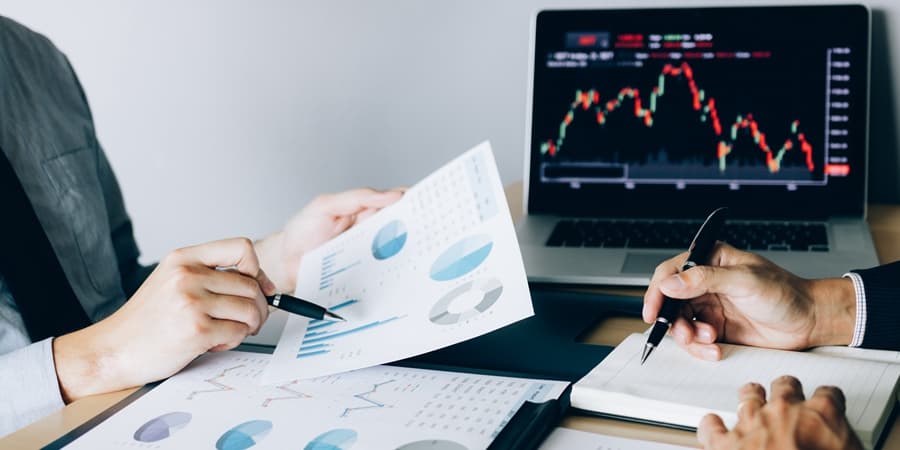
Are you seeking a way to enter the trading world without owning the underlying assets?
If so, Contract for Difference (CFD) trading might be the solution you've been looking for! CFD trading not only provides access to a diverse range of markets but also offers numerous advantages that traditional trading methods cannot match.
In this guide, we will explore the key benefits of CFD trading and explain why you should consider trading CFDs. Let’s dive in!
1. Benefits and Limits of CFD
To analyze a financial instrument, we need a comprehensive understanding of its advantages and disadvantages before making a decision to invest. Below is a comparison list to clarify these points:
Advantages of CFDs
Leverage for Amplified Profits: A flexible tool for hedging assets and expanding profits, making it increasingly attractive to investors. When used correctly, it can yield returns significantly higher than traditional investments.
Access to Global Financial Markets: Most CFD exchanges offer popular, highly liquid financial products and provide access to over 4,000 markets around the clock.
Diverse Product Range: A rich variety of assets, including stock CFDs, index CFDs, commodity CFDs, and cryptocurrency CFDs, offering investors more choices.
Free Risk Management Tools: Provides take-profit and stop-loss orders, as well as negative balance protection, enhancing investor peace of mind.
No Day Trading Requirement: Investors can trade whenever they feel it is appropriate, without being bound by minimum capital requirements.
Diverse Investment Opportunities: The ability to short sell allows for profit potential in both rising and falling markets.
Low Trading Costs: No taxes on profits, only applicable spread, overnight fees, and commissions, which are generally low due to high competition.
Disadvantages of CFDs
Risk of Using Leverage: While it can increase profits, it can also lead to proportional losses if not used wisely.
Limited Legitimacy: The CFD market is still developing, and regulation is not yet fully strict.
Should I trade CFDs? In the next section, we will explore why so many people are engaging in CFD trading and whether it is the right choice for you.
2. Why Trade CFDs?
Now that you understand the pros and cons of CFDs, let’s explore why people trade them. Here are the top five reasons:
All-in-One Access
One of the unique benefits of CFD trading is the convenience and flexibility it offers. With CFDs, traders can access a wide range of markets, including forex, stocks, indices, commodities, and even cryptocurrencies.
The best part?
You can trade all these markets through a single platform, eliminating the need for multiple accounts or complex trading systems. This all-in-one approach is particularly appealing to traders who want to diversify their portfolios and capitalize on various market opportunities.
For example, you could open a CFD position on gold while simultaneously trading in the stock market and forex pairs—all from the same platform. This allows you to explore different markets and identify opportunities that best align with your trading style and goals.
Volatility
In financial markets, volatility refers to the degree of price fluctuation in an asset. High volatility means the price experiences significant movement, while low volatility indicates relative stability.
Did you know that the term "volatility" comes from the Latin word "volatilis," meaning "fleeting" or "flying"? This reflects how volatile assets tend to have rapid and unpredictable price movements, akin to the flight of a bird.
Trading CFDs in volatile markets can offer traders higher profit potential. When an asset is more volatile, there’s a greater chance for its price to change significantly in a short period.
For instance, if you had bought a CFD on Bitcoin in 2020 when it was trading around $10,000 and sold it when it reached its all-time high of $64,000 in 2021, you would have made a substantial profit.
Volatility adds an exciting element to trading CFDs. Let’s face it—trading can sometimes be dull, especially when markets are flat with minimal movement. However, when volatility spikes, things can get interesting. You need to stay alert and ready to react quickly to sudden price changes, making for a more engaging CFD trading experience.
Liquidity
Liquidity refers to how easily you can buy or sell an asset without impacting its price. In other words, an asset with high liquidity can be quickly bought or sold at a fair bid/ask spread.
CFD trading offers high liquidity, allowing you to buy and sell positions at any time with tighter bid/ask spreads. This high liquidity also ensures that your trades are executed quickly and efficiently, minimizing slippage or delays.
For instance, if you notice that the price of GBP/USD has suddenly dropped and you want to capitalize on the move, you can open a short position on a GBP/USD CFD and potentially profit if the value continues to decline.
Moreover, trading CFDs with high liquidity reduces the likelihood of experiencing sudden price swings or volatility, helping you manage your risk more effectively and avoid unexpected losses.
Go Long and Short
When trading CFDs, you can take both long and short positions on an asset. Going long means you expect the asset's value to increase, while going short indicates that you anticipate a decrease.
For example, if you believe the US stock market will rise, you could open a long position on the S&P 500.
With the high liquidity of CFDs, you can also use both long and short positions as a hedging strategy. For instance, if you hold a long position on EUR/USD and the market turns bearish, you can open a short position to offset potential losses. This approach can help protect you from downside risk.
Leverage
In CFD trading, leverage allows you to gain exposure to various markets with a smaller capital outlay. It magnifies your trading positions at a fraction of the total cost.
One major benefit of trading CFDs with leverage is the potential for higher returns. Leverage enables you to increase the size of your position relative to your account balance.
For example, if you have a $1,000 account and use 10:1 leverage, you can open a position worth $10,000. If the market moves in your favor, your profits are based on the full $10,000 position size rather than just your original $1,000.
However, higher returns come with increased risks. Leverage is a double-edged sword that amplifies both profits and losses.
Another advantage of trading CFDs with leverage is that it allows access to markets that may be difficult to invest in otherwise. For instance, a retail investor might not have enough capital to buy physical gold, but they could trade a CFD on gold prices using leverage. This opens up a broader range of markets and helps diversify investment portfolios.
Lower Costs
One of the significant advantages of trading CFDs is that they often come with lower costs compared to other trading forms.
Since you don't own the underlying asset when trading CFDs—you're speculating on price movements—you don't need to pay the full asset cost upfront. Instead, you only need to provide a fraction of the total trade value, known as margin trading, which is related to leverage trading.
For example, if you want to buy company shares but only have $500 to invest at $50 per share, you can purchase only ten shares. However, by trading CFDs on the same company, you could control a much larger number of shares with that same investment, thanks to margin trading.
Additionally, many brokers offer no-commission trading for CFDs, allowing you to avoid certain fees typically associated with traditional trading. You can also evade specific taxes that usually apply to conventional stock or commodities trading.
3. Should I Trade CFDs?
In the previous section, we discussed some of the benefits of trading CFDs, but are they sufficient for you to make a decision? Here are some key factors to consider:
CFDs allow you to trade on margin, meaning you can control a larger amount of the underlying asset with a smaller capital investment. While this can amplify your potential profits, it also increases your potential losses.
Additionally, consider the fees associated with trading CFDs. These can vary by broker and may include spreads, overnight charges, and commission fees.
CFDs are complex financial instruments and may not be suitable for those who are new to trading.
Ultimately, your decision should depend on your goals, risk tolerance, and trading experience. If you are an experienced trader who understands the risks and potential rewards of CFD trading and has a solid trading strategy, it may be worth considering.
Before making any trading decisions, it is important to equip yourself with sufficient fundamental knowledge, have a comprehensive understanding of market trends, be aware of risks and hidden costs, carefully consider investment targets, level of experience, risk appetite, and seek professional advice if necessary.
Furthermore, the content of this article is solely the author's personal opinion and does not necessarily constitute investment advice. The content of this article is for reference purposes only, and readers should not use this article as a basis for any investment decisions.
Investors should not rely on this information as a substitute for independent judgment or make decisions solely based on this information. It does not constitute any trading activity and does not guarantee any profits in trading.
If you have any inquiries regarding the data, information, or content related to Mitrade in this article, please contact us via email: insights@mitrade.com. The Mitrade team will carefully review the content to continue improving the quality of the article.



